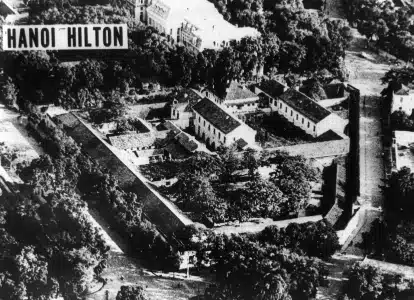Two millennia ago, the Roman historian Plutarch penned a series of Parallel Lives of famous Greeks and Romans. He would juxtapose some notable figure from classical Greece against another from classical Rome in order to entertain, inform and teach. He presented a capsule biography of each, then appended a short essay comparing and contrasting between them. For example, he wrote parallel biographies of Alexander the Great and Julius Caesar, two conquerors of lasting renown.
In so doing, Plutarch aspired to help readers learn how to live. He encouraged them to emulate the virtues they found among the ancients while spurning what they found low, or base, or unbecoming. Plutarch never wrote a biography of two friends, but he has a worthy successor in reporter James S. Hirsch. In his book, “Two Souls Indivisible,” Hirsch recounts the story of Fred Cherry and Porter Halyburton, U.S. aviators shot down over North Vietnam and imprisoned for eight years. They spent part of their ordeal together.
Their story is worth retelling on this Fourth of July weekend.
Halyburton, a retired U.S. Navy airman, was one of my professors and later a colleague at the Naval War College during the 1990s. He seldom spoke about his experiences in Indochina. We knew he had been a prisoner of war from 1965-1973. He was missing long enough to be declared dead. He reputedly kept his gravestone and used it as an anchor for his fishing boat after the war.
Hirsch fills out the story in calm, spare prose that magnifies the impact of his account. The author describes the traumas of the Vietnam era — racial animus, bitter domestic strife over the war — without presuming to sit in judgment. “Two Souls Indivisible” originated with his interest in how the armed forces desegregated. The military, he says, represents “the country’s premier example of how a large institution successfully integrates.” He adds that “the seeds of that success were planted in Vietnam.”
In other words, transforming large institutions with ingrained attitudes and customs isn’t easy. It often takes a painful stimulus of some sort — not just a mandate from top leadership.




